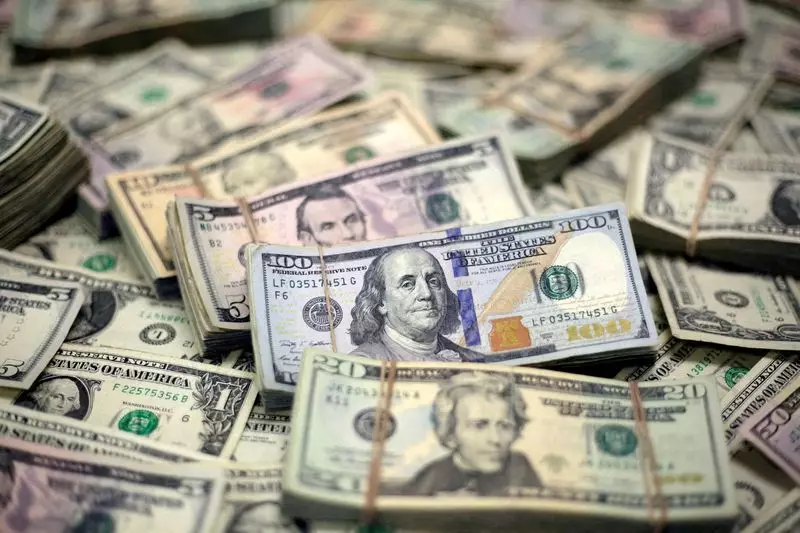The current global economic landscape is witnessing significant turbulence, particularly reflected in the fluctuating value of the U.S. dollar. On Monday, the dollar experienced a notable decline in the Asian markets as investors prepared for a potential pivotal moment in the global economy. The stage is set for a decisive week, with the U.S. presidential election results looming and the Federal Reserve signaling possible interest rate cuts. This confluence of events introduces a spectrum of uncertainty that shapes currency values and investor sentiment.
The dollar weakened against major currencies, indicative of investor wariness. The euro gained ground, rising 0.6% to $1.0901 and approaching a key resistance level. Similarly, the dollar fell against the Japanese yen, dipping to 151.60, teetering on the support levels at 151.45. Overall, the dollar index retreated by 0.3%, standing at 103.63. The sharp movements underscore the dynamics of a market that is uncertain of both economic policy shifts and political outcomes.
A critical factor influencing the market’s response is the proximity of the U.S. election, where the Democratic candidate Kamala Harris and the Republican incumbent Donald Trump appear almost neck and neck in various opinion polls. The outcome of this election is projected to have profound impacts on economic policy, particularly regarding inflation, taxation, and overall market stability. Analysts predict that a win for Trump could result in heightened inflation and upward pressure on bond yields, primarily due to his proposed economic policies centered around tax cuts and trade tariffs.
Conversely, Harris, perceived as the continuity candidate, may signal steadier economic policies. A notable uptick in her polling, particularly among female voters in critical swing states such as Iowa, could alter investment strategies. The Selzer Poll, respected in financial circles, revealed Harris holding a surprising lead—an indication of the volatility present in the election and its potential to sway currency developments. Betting markets have also reflected this uncertainty, showing Harris as slightly favored compared to Trump, a shift from previous odds.
Compounding the currency fluctuations is the market’s expectation that the Federal Reserve will announce a 25-basis-point interest rate cut during its upcoming meeting. Analysts widely predict a 99% likelihood of such a reduction, which would bring rates to a range of 4.50% to 4.75%. There is speculation surrounding additional cuts in 2025. Goldman Sachs highlighted that while certain cuts seem nearly inevitable, the ultimate path taken by the Federal Reserve remains obscured by disagreement in economic forecasts.
Other central banks are also expected to take similar measures. The upcoming week’s meetings include the Bank of England, which is anticipated to implement a 25-basis-point reduction. Conversely, the Riksbank is projected to lower rates by 50 basis points, while the Norges Bank maintains its current rate. The Reserve Bank of Australia may hold steady, further emphasizing the global trend toward looser monetary policy.
The international investment community is also keeping a close eye on developments from China, where the National People’s Congress aims to boost economic activity in response to domestic challenges. Reports suggest a proposed issuance of over 10 trillion yuan (approximately $1.40 trillion) in additional debt, aiming to revitalize a struggling economy. This proposed increase in fiscal stimulus could impact global markets, influencing both the dollar and international investment strategies.
The interplay between domestic fiscal policies and chronic global challenges creates an intricate web of economic dependencies. Currency traders are keenly aware that decisions made in key economies will have far-reaching ramifications on currency values, bond markets, and global trade dynamics.
The months ahead promise to be fraught with volatility stemming from both political events and policy shifts. Investors are left to carefully navigate these uncertainties, making strategic decisions that could significantly influence their portfolios. As the political landscape unfolds with the election results and central bank meetings, the possibility of rapid changes in currency values and investor sentiment remains high. Thus, the global financial markets find themselves at a challenging crossroads, where each decision could be pivotal in shaping the economic future. Understanding these dynamics is crucial for any investor aiming to stay ahead in an increasingly complex and interconnected world.

